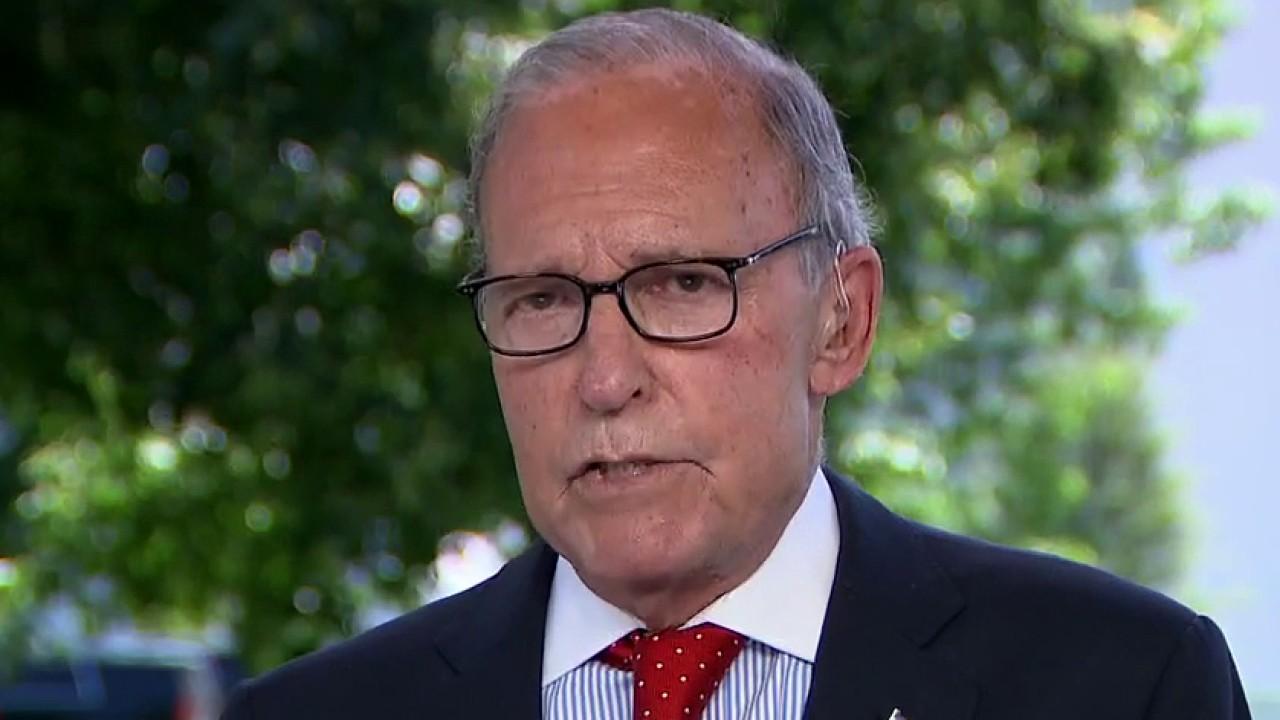US economy faces new hurdle for recovery: Child care crisis
School systems are weighing only a partial reopening in the fall, or remaining entirely virtual
The U.S. economy faces another hurdle in its recovery from the coronavirus-induced financial crisis: A lack of child care.
Experts broadly agree that reopening schools in the fall could be key to reversing the severe economic damage inflicted by the pandemic.
But as a fresh wave of COVID-19 outbreaks prompts some states to hit pause on their plans to reopen — and others, including California, to reimpose restrictions they had previously lifted — school systems are weighing only a partial reopening in the fall, or remaining entirely virtual.
TRUMP CONTINUES TO PUSH FOR SCHOOLS TO REOPEN THIS FALL
President Trump and his administration are pressuring schools to bring children back to the classroom full-time, threatening to withhold federal funding if they don't and give additional aid if they do.
"If we don't reopen the schools, that would be a setback to a true economic recovery," Trump's top economic adviser, Larry Kudlow, told FOX Business on Monday. "So let's not go there. Let's use some American ingenuity and common sense to get the schools open."
It could disproportionately hurt blue-collar and essential workers, who don't have the choice to do their job remotely, if schools do not reopen. Low-income and working-class women, who have already been hit hardest by the crisis, as well as small businesses, will also be impacted by the lack of child care.
CUOMO, DE BLASIO CLASH OVER NYC SCHOOLS REOPENING
Thirteen percent of working parents had to quit a job or reduce hours due to a lack of child care, according to Northeastern University researcher and economics professor Alicia Sasser Modestino. The study found parents lost an average of one full day of work per week to address their child's needs. It was based on a survey of 2,557 working parents and was conducted between May 7 and June 22.
An estimated 17.5 million workers, or roughly 11 percent of the country's workforce, are taking care of their children on their own and will be unlikely to return to work full-time until schools or child care facilities open, according to a separate analysis by the University of Chicago's Becker Friedman Institute. Overall, about 32 percent of the workforce has someone in their household who's under the age of 14, meaning about 50 million workers need to take into consideration children when returning to their jobs.
TRUMP ASKS TREASURY TO REVIEW COLLEGES' TAX-EXEMPT STATUSES
"While there is scope for a large rebound in employment even if schools and daycares remain closed, the economy will remain 17 million workers short of normal employment in this scenario," the study found, adding: "The longer school closures persist into the recovery of the economy, the greater will be the burden faced by those workers with young children and no obvious childcare options."
The CARES Act passed in March allocated $13.5 billion to K-12 education, just a fraction of the $2.2 trillion in government spending thrown at the virus-induced downturn, and $3.5 billion for child-care. Education groups estimate that administrators need much more money than that in order to safely get students and teachers back in the fall.
In a recent letter to Congress, the Council of Chief State School Officers, a nonprofit organization that represents public officials who lead state departments of elementary and secondary education, estimated the cost of safely reopening is between $158.1 billion and $244.6 billion.
GET FOX BUSINESS ON THE GO BY CLICKING HERE
Congress is weighing several proposals to address the gaping need for child care in the U.S. -- and the House may expedite the passage of two measures.
The Child Care for Economic Recovery Act, introduced by several House Democrats, including House Ways and Means Committee Chairman Richard Neal, D-Mass., and Rep. Nita Lowey, D-N.Y., would increase access to affordable child care, including enhancing the child and dependent care credit; creating a new tax credit to help employees access affordable health care; and provide a refundable payroll tax credit for child-care providers.
“Without access to safe, affordable child care, American workers simply won’t be able to return to their jobs. Ensuring this care is available for families is essential for our economy’s reopening,” Neal said.




















